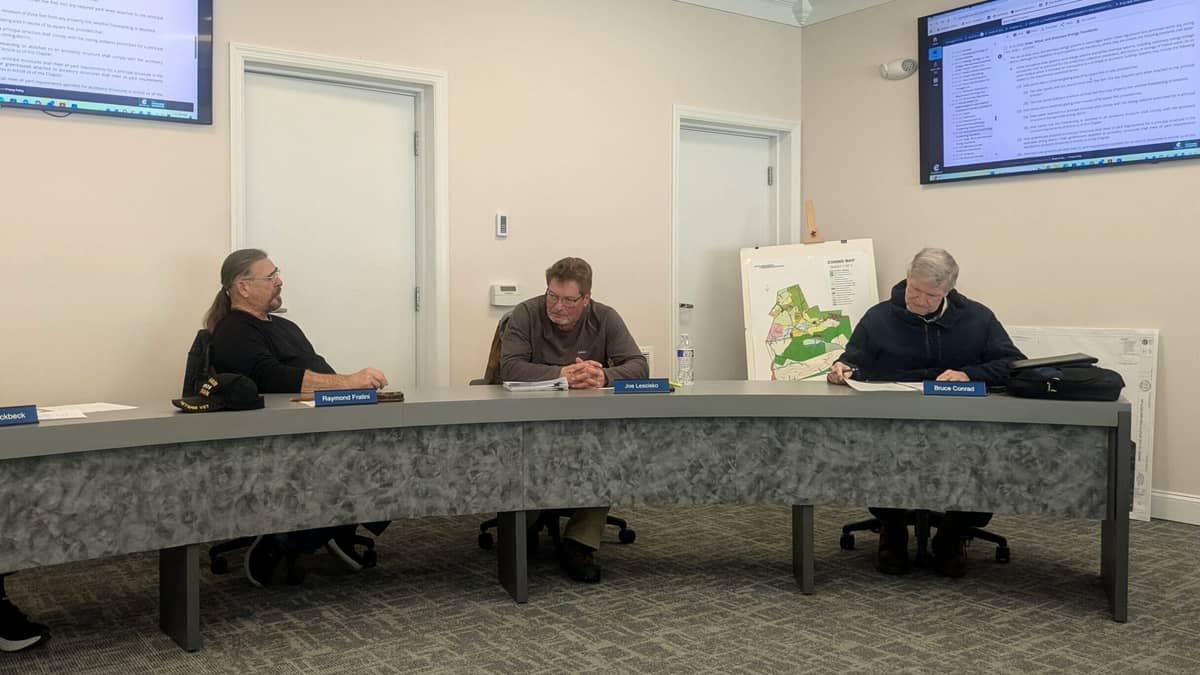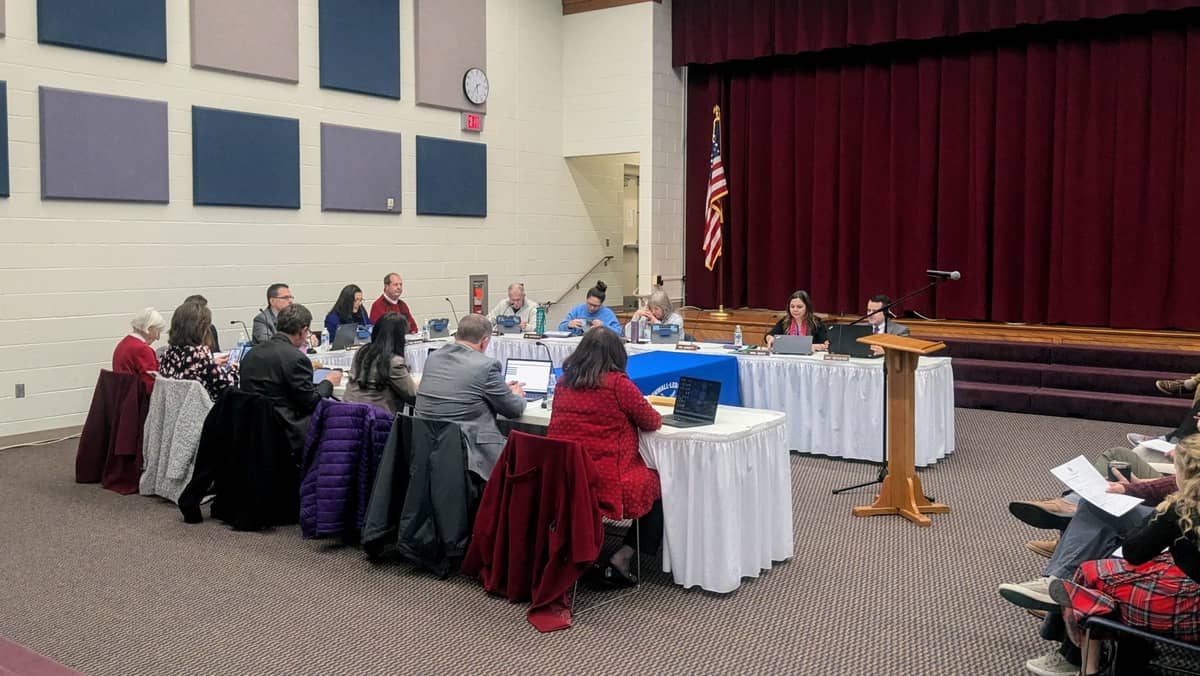This article is shared with LebTown by content partner Spotlight PA.
By Angela Couloumbis of Spotlight PA, Joseph N. DiStefano of The Philadelphia Inquirer and Craig R. McCoy of The Philadelphia Inquirer
HARRISBURG — Upset at leaks about a federal investigation of the PSERS pension fund, leaders of the beleaguered plan’s board have cut off other board members from legal briefings about the probe — and are considering demanding that they sign nondisclosure agreements before they resume.
The panel’s chair, teacher Christopher Santa Maria, and board member Frank Ryan, a Republican state representative from Lebanon County, have also told board members they were considering asking for an investigation into the disclosures, according to people familiar with the matter.
At a closed-door board meeting in Harrisburg last week, they discussed asking state prosecutors, the state Inspector General’s office, or a bipartisan legislative committee to track down whoever leaked information.
The unusual, perhaps unprecedented, idea of requiring board members of a state agency to sign a nondisclosure agreement, or NDA, further divided a board that appears increasingly split and acrimonious.
At the close of Wednesday’s 90-minute board meeting, state Sen. Katie Muth, a Democrat from Chester and Montgomery Counties who is the fund’s most outspoken critic, spoke publicly to condemn the shutoff of information. She said Santa Maria and Ryan, the latter the head of the board’s powerful audit subcommittee, were wrongly excluding other board members from key information.
“If the chair of this board and chair of the audit committee cannot include the entire board in all briefings and all meetings,” Muth said, they should “resign because they are blocking this board in its fiduciary duties.”
Neither a PSERS spokesperson nor Santa Maria or Ryan responded to requests for comment.
Pressure on PSERS — the Public School Employees’ Retirement System — and its 15-member board ratcheted up a week ago with news that the U.S. Securities and Exchange Commission had joined federal prosecutors and the FBI in investigating the $70 billion pension plan for 500,000 retired and working public school educators.
Like the prosecutors, the SEC is investigating the board’s embarrassing mistake late last year when it officially endorsed a mistaken, and too rosy, figure for the fund’s investment performance. The SEC added a twist to the probe, though — revealing that it was also investigating whether the fund’s staff had improperly taken gifts from outside consultants and investment houses.
The lower investment returns have resulted in some employees having to contribute more to their pension plan, and to taxpayers having to kick in more money.
The Inquirer and Spotlight PA, quoting unidentified sources, disclosed the SEC subpoena a day after it was served on the pension’s fund chief. Bloomberg News, followed by The Inquirer and Spotlight PA, later published stories detailing the subpoenas.
The board spent most of Wednesday’s closed-door meeting going over leak issues and the NDA proposal, barely discussing the SEC subpoena or the new allegations involving gifts, the sources said. Santa Maria and Ryan said they were worried that exposure of confidential information could damage the agency.
In rebuttal, the sources said, other board members questioned how any such gag order would be enforced and whether they would even be effective.
In the brief public session, Muth exchanged words with another board member, Deborah Beck, an Upper Darby schools worker. Muth also had a gibe for William M. Sullivan Jr, the outside lawyer who has been briefing the board on the investigations and has raised concerns about the leaks.
Muth said: “I remind the board, to uphold your fiduciary duty involves that you are fully informed.”
Beck replied: “We are.”
Muth: “The whole board is not. And keep smiling, Mr. Sullivan.”
The board for PSERS is made up of volunteers, serving to represent various constituencies, most of whom serve in elected posts. Four are elected state lawmakers. One is the state’s elected treasurer. One is an elected school board member. Five were elected to their board posts in elections open only to educators.
On Wednesday night, five days after the SEC subpoena arrived, PSERS put out a two-sentence public statement confirming its delivery. The vague statement made no mention of the demand for information about the botched calculation or the suggestion that staff might have been improperly accepting gifts.
Six months after prosecutors first subpoenaed information from the pension system as part of a grand jury investigation, taxpayer-supported PSERS has remained largely silent about the probes. The board has never explained how it made the calculation error and is fighting a bid by The Inquirer under Pennsylvania’s right-to-know law for the release of documents about the mistake.
In the original subpoenas, copies of which were obtained by The Inquirer, prosecutors also sought information about the fund’s expenditure of several million dollars to buy industrial buildings and parking lots nears its Harrisburg headquarters. The fund has said little about this, too, or even explained its agenda for the purchases.
Since the scandal broke, the board has hired three law firms and a financial consultant to help it deal with the fallout. Lawyer Sullivan, a former federal prosecutor who helps lead the white-collar criminal defense and corporate investigations team for a Washington law firm, has told the board in closed sessions about the investigation.
In his April pitch letter to be hired, Sullivan had warned that the criminal probe could pose “real and significant risks for PSERS board members.” He wrote that he has been “uniquely successful … in persuading government and regulatory authorities to decline to pursue criminal investigations.” He also promised that his firm, Pillsbury Winthrop Saw Pittman, could shield board members “from aggressive criminal investigative scrutiny.”
Sullivan, paid $925 an hour for his work for PSERS, was among those at Wednesday’s meeting who raised concerns about the unauthorized release of information, sources said.
In an interview with The Inquirer, Edward Siedle, lawyer and former SEC attorney who specializes in forensic investigation of pension plans, said public retirement systems have an obligation to be open.
“Corporate lawyers don’t get that public pensions are public,” said Siedle, who is not connected with PSERS or the investigations. “The corporate lawyers need to learn that it is not a feature, it should be the goal, of public pension plans to be accountable because they need to inspire accountability and trust.”
Taxpayers pay about $5 billion into the PSERS treasury yearly. School employees pay about $1 billion. Investment profits reached a high last fiscal year of $12 billion.
In recent boards meetings, the PSERS board has been riven by disagreement, with a minority pushing for the firing of top fund executives and a majority rejecting a number of investments proposed by the fund’s financial staff. That said, 12 of the 15 members signed a recent letter complaining that The Inquirer’s coverage had reduced the board’s differences to a “schoolyard fight.”
Muth didn’t sign the letter. After last week’s meeting, she called for the board to put unidentified top managers on leave pending the result of the probes.
In June, she took the unusual step of suing the agency on the board where she sits, saying in a lawsuit filed in state Commonwealth Court that it had improperly blocked her access to PSERS documents. The pension has fought back, calling her “biased” and accusing her of wanting to conduct a “freelance investigation.”
Muth’s lawyer, Terry Mutchler, with the Obermayer firm in Philadelphia, responded that the pension plan was attempting to paint Muth as an “inept Nancy Drew” while running roughshod over her duty to “scrupulously examine and investigate” fund actions.
WHILE YOU’RE HERE… If you learned something from this story, pay it forward and become a member of Spotlight PA so someone else can in the future at spotlightpa.org/donate. Spotlight PA is funded by foundations and readers like you who are committed to accountability journalism that gets results.























